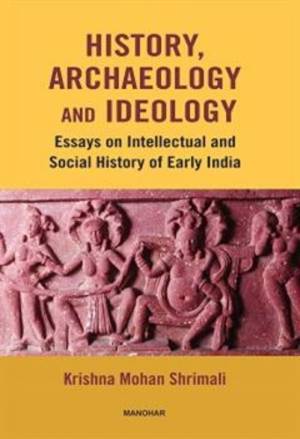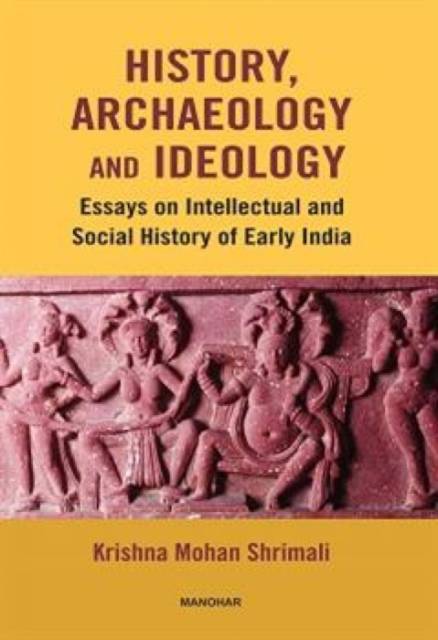
- Retrait gratuit dans votre magasin Club
- 7.000.000 titres dans notre catalogue
- Payer en toute sécurité
- Toujours un magasin près de chez vous
- Retrait gratuit dans votre magasin Club
- 7.000.0000 titres dans notre catalogue
- Payer en toute sécurité
- Toujours un magasin près de chez vous
History, Archaeology and Ideaology
Essays on Intellectual and Social History of Early India
Krishna Mohan Shrimali
Livre relié | Anglais
97,45 €
+ 194 points
Description
In a country as vast and varied as India and that too with an extraordinary long and continuous history spanning over several millennia, historical processes of its development just cannot be unilinear. Since such diversi-fied processes are being presented in this monograph in a broad material background, it becomes imperative that the simultaneous presence of varied production processes in different parts of the subcontinent is recognised and underlined. In fact, modes of production and productive forces as factors behind historical transformations through the centuries have been stressed in most of the contributions here. Be it the issue of social formations and their dynamism, or of the analysis of the so-called 'feminist' writings; comprehending the ground realities of the lowest orders of the social fabric, or of providing fresh insights for delineating the developmental stages of Indian arts; construction of the apparatus of knowledge systems in early India, or of establishing the true identity of common Indian human being; the central focus has always been on the ordinary toiling people of the country. Even archaeologists have been exhorted to make them the real subjects of enquiry and data retrieval in their diggings and excavation reports. Long tradition of questioning going back to the ?gveda, social bases of knowledge systems, construction of 'heritage' and its sustenance in the face of challenges of 'development', ideological confrontations with neo-colonialist strains and incessant concern about communalisation of writings on Indian history and archaeology are other themes that have been highlighted here. Sixteen essays of this anthology cover almost the whole gamut of five millennia of Indian history.
Spécifications
Parties prenantes
- Auteur(s) :
- Editeur:
Contenu
- Nombre de pages :
- 559
- Langue:
- Anglais
Caractéristiques
- EAN:
- 9788196206802
- Date de parution :
- 01-12-24
- Format:
- Livre relié
- Format numérique:
- Genaaid
- Dimensions :
- 152 mm x 229 mm
- Poids :
- 836 g

Les avis
Nous publions uniquement les avis qui respectent les conditions requises. Consultez nos conditions pour les avis.






